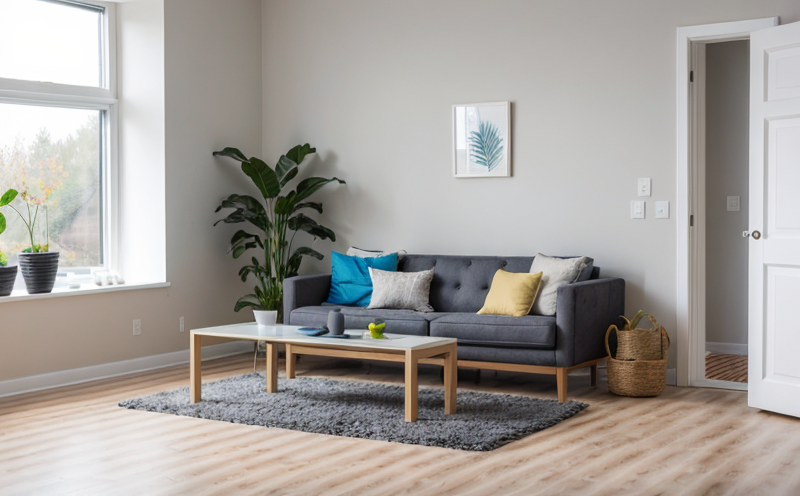EN 1822 HEPA and ULPA Filter Testing
The European Standard EN 1822 specifies the performance criteria for high-efficiency particulate air (HEPA) filters and ultra-low penetration air (ULPA) filters. These filters are essential in maintaining indoor air quality, especially in environments where stringent particle control is required such as hospitals, cleanrooms, and laboratories.
In our laboratory, we perform rigorous testing on HEPA and ULPA filters to ensure they meet the strict requirements laid down by EN 1822. This comprehensive service includes testing for filtration efficiency, air leakage, and pressure drop across the filter. Our advanced equipment allows us to simulate real-world conditions under which these filters operate, ensuring that our test results are reliable and accurate.
Our testing process begins with careful preparation of the sample filters according to EN 1822 guidelines. We then subject them to a series of tests designed to assess their performance under various conditions. These tests include:
- Filtration efficiency at various particle sizes
- Airtightness and air leakage testing
- Pressure drop measurement across the filter
- Dust loading capacity assessment
The results of these tests provide detailed insights into the performance characteristics of the filters, helping our clients make informed decisions about their suitability for specific applications. Our team of experts ensures that all tests are conducted in accordance with EN 1822 standards, ensuring compliance and quality.
Our laboratory adheres strictly to international standards such as EN 1822, ISO 9001, and ASHRAE 52.1, which guarantees the highest level of accuracy and reliability in our test results. This commitment to precision and adherence to global best practices ensures that we provide accurate and actionable data for our clients.
| Filter Type | Filtration Efficiency Requirement |
|---|---|
| HEPA Filters (EN 1822 Class F9) | ≥99.95% efficiency at 0.3 μm particles |
| ULPA Filters (EN 1822 Class F12) | ≥99.995% efficiency at 0.12 μm particles |
| ULPAC Filters (EN 1822 Class F13) | ≥99.999% efficiency at 0.12 μm particles |
In summary, our EN 1822 HEPA and ULPA filter testing service provides clients with comprehensive insights into the performance of their filtration systems. By adhering to international standards and using advanced equipment, we ensure that our test results are accurate, reliable, and actionable.
Applied Standards
| Standard | Description |
|---|---|
| EN 1822-1:2009 | Performance, classification and marking of HEPA filters used in HVAC systems |
| EN 1822-6:2015 | Performance, classification and marking of ULPA filters used in HVAC systems |
The European Standard EN 1822 is a comprehensive framework that specifies the performance criteria for both HEPA and ULPA filters. It ensures that these filters meet stringent quality standards, which are critical for maintaining indoor air quality.
EN 1822-1 defines the testing methods for HEPA filters, specifying filtration efficiency at various particle sizes. EN 1822-6 focuses on ULPA filters, setting similar but even more stringent requirements regarding efficiency and classification. Our laboratory strictly adheres to these standards, ensuring that our test results are accurate and reliable.
The standard also includes guidelines for marking the filters with their performance class, which helps in identifying the appropriate filter for specific applications. This ensures that only high-quality, efficient filters are used, contributing significantly to maintaining superior indoor air quality.
Benefits
- Enhanced Indoor Air Quality: Ensures that the filters perform as expected, reducing airborne contaminants and improving respiratory health in sensitive environments.
- Compliance with Regulatory Standards: Helps clients meet regulatory requirements and industry standards for filtration systems.
- Improved Efficiency: Identifies any inefficiencies early on, allowing for timely corrective actions to be taken.
- Cost Savings: By identifying potential issues before they become critical, clients can avoid costly repairs or replacements down the line.
The benefits of our EN 1822 HEPA and ULPA filter testing service extend beyond just meeting regulatory requirements. It also provides peace of mind for quality managers, compliance officers, R&D engineers, and procurement teams who rely on accurate data to make informed decisions about their filtration systems.
Eurolab Advantages
Our laboratory is equipped with state-of-the-art facilities and experienced personnel dedicated to providing top-notch testing services. Here are some of the key advantages that our clients can expect:
- Comprehensive Testing Capabilities: We offer a wide range of tests, including those specified in EN 1822-1 and EN 1822-6.
- Expertise and Experience: Our team comprises highly skilled professionals with extensive experience in HVAC and filtration systems.
- Accurate and Reliable Results: We use advanced equipment to ensure that our test results are accurate, reliable, and actionable.
- Client-Centric Approach: We understand the unique needs of each client and tailor our services accordingly to meet their specific requirements.
Our commitment to excellence ensures that we provide high-quality testing services that exceed industry standards. By choosing Eurolab for your EN 1822 HEPA and ULPA filter testing needs, you can be confident in the accuracy and reliability of our test results.





